Article by: SPfreaks
Article written by guest writer Michael Berrios
In 2000, my older brother introduced me to the music videos for The Everlasting Gaze, 1979, and Zero.
I was 6 years old at the time and found the Pumpkins’ music both captivating and, as per Billy’s intense monologues in The Everlasting Gaze and Zero, simply awesome. In this account, I plan on expressing many of the frustrations (and praises) of Smashing Pumpkins fans, along with what it means to be one today.
As a super fan that collects all the rarities, looks for the best 90s bootlegs (including Zeitgest-era SP to present), and travels across the country to see the band when it does not come to Florida, I know I’m not alone when I say that Dave (that kid who wrote Billy a letter) has a point as far as there being a definitive possibility that Billy chose to play Oceania in-full in an attempt to prove that he is still relevant as a songwriter and musician; he has on numerous occasions expressed his disdain for his critics.
However, Oceania was originally intended to be listened to track after track – and it is only logical for its creators to present it in a way they believe it should be heard. Furthermore, reviewers have berated the man since the 90s for his nasal, whiny voice and confessional, emotional lyrics–for things that made the Smashing Pumpkins so awesome.
Billy is known for such innovative, grandiose projects. In the late 90s, both he and James Iha stated independently that rock music was becoming boring to play and that the future was in electonica. Today, there has been a renewed interest in his electronic solo-album TheFutureEmbrace (so he says, anyway). For his resolve in continuing to pursue audacious music projects, I respect him for playing Oceania in its entirety–though I favor the first half of the album versus the second half (Tracks 1-4 + The Chimera). But I still disagree with him in his belief that a band cannot be relevant via individual, digital singles and other nonconformist methodologies of releasing albums–for if the music is powerful enough, a band will have its impact and be known–if the music isn’t, it won’t.
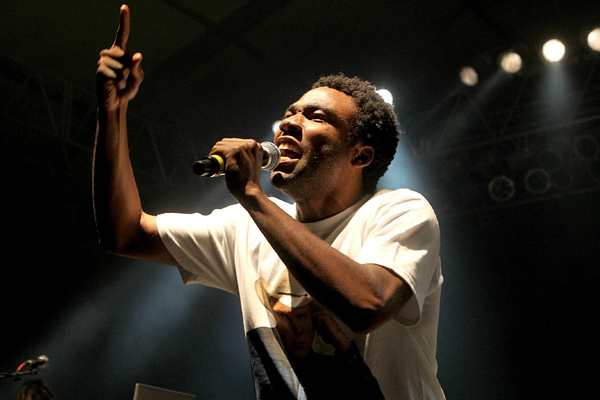
Royalty from Childish Gambino, anyone?
Do I empathize with Billy based on the state of commercialized music today? Absolutely, for even if Billy was producing songs at the caliber with which he did when he was 28 (MCIS), the music scene and record labels would still stifle him. Recently, Pumpkins fans are attempting to mobilize and chastize reviewers who criticize the absence of the original line-up, while also making requests to radio channels so that Oceania gets some airtime. These are very interesting ventures in the community to me, as it solidifies a new Pumpkins era – at least in the indie scene. However, for every fan that wants to help SP get back to the top, there are just as many ignorant Smashing Pumpkins fans that only have 1979, Disarm, and Cherub Rock on their iPods. To the casual SP listener, he or she may end up feeling dissatisfied or frustrated with the band’s setlist and the absence of the original line-up (even though Billy wrote nearly all of the material and has been the only consistent member through the years).
When the Pumpkins go on a tour, I immediately check setlist.fm to see what songs are getting played as Billy has an immense catalogue of material to choose from. I say Billy because I’m not sure what input Mike, Nicole, and Jeff have in choosing old songs to play live. To me, most of it is pretty damn good. What this means is that I examine each setlist with a bias. In 2011, it was, “They’re playing Thru the Eyes of Ruby! This is gonna be awesome!” because I knew it hadn’t been played since at least the late 90s. When I told several of my friends who were only casual listeners that they were playing the song, they shrugged their shoulders.
Having such a massive catalogue of good material and varying genres across albums means that Billy has to pick and choose what to play from each. And while this article is in no way being written as a defense for the man, it should be noted that if one determines his satisfaction of a concert based on whether or not Cherub Rock or Disarm or To Sheila got played, he may end up feeling let down.
Is there a cure for this condition for The Pumpkins or any other band?
No, it is a personal paradigm that you as a listener must arrive at. Will you accept the difficulty an older band has in preparing a setlist that encompasses the tastes of its audience (which often includes playing the songs in a way that still sounds good as you get older) or determine your happiness based on whether or not your favorite song from said band was played? Both are understandable beliefs and each will determine your conviction as a fan.
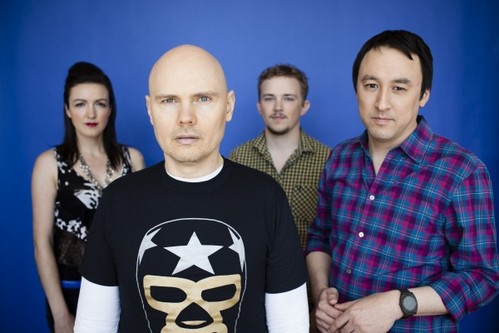
On the use of the band name
Throughout high school I bought into Teargarden by Kaleidyscope and Zeitgeist as a Billy Corgan fan boy even when he kicked Jimmy out of the band again in 2010 (Check out his Rolling Stone interview). I even took my Pre-Calculus test while listening to A Stitch in Time. The question people are still asking after 5 years post-reformation remains: Should Billy call the band The Smashing Pumpkins anymore? I think so, as long as the music he outputs has several key components: emotional singing, enigmatic lyrics, the Big Muff pedal, and LOTS of overdubbing.
In reality, however, The Smashing Pumpkins were gone a long time before returning in 2007–not since 2000, but since 1997. (I did not forget about the Arising shows.) After Jimmy Chamberlin was kicked from the band, Matt Walker was brought in, beginning what remains to be my favorite SP-era. Why?
[youtube http://www.youtube.com/watch?v=xvNSvTPK2BI&w=420&h=315]
The explosive and energetic live performances, seamless combination of songs (such as Porcelina of the Vast Oceans and Rocket), and the legendary metal screams from Billy that permeated the majority of the band’s songs. The next year brought with it the melodic studio release Adore, which was categorized by live setlists much more tame in contrast. Machina, on the other hand, was similar to older releases and included heavier shows during the subsequent tour.
These are both respectable and solid SP efforts. But do I listen to these albums? Songs from them, yes. Adore is very dark and lacked the rock anthems that I enjoyed from past albums, while I just didn’t connect with most of the songs on Machina.

There’s a reason why Billy hails Oceania as the band’s best effort since Mellon Collie. Hey maybe there’s several–or a lot more than that–such as the relationships between the band members and the work each member contributed in the studio…
In 2007, Billy and Jimmy reformed the band without James and D’arcy, alienating fans that wanted the early 90s line-up back. They released Zeitgeist, a political album that seemed to lack heart above anything else. In 2008, the band went on a 20th Anniversary Tour where Billy was standoffish and confrontational to crowds that expected Greatest Hits performances (It WAS called the 20th Anniversary Tour…) When Rolling Stone was writing about Billy calling “James Iha” up on stage, I was more annoyed at the fact that he wasn’t using his softer voice when he performed newer and older songs. But that’s just a personal preference.
I have no shame in admitting that what I wanted was young Billy back; I wanted the IMAGE of the band back that expressed every pain, anguish, doubt, fear; every ounce of happiness that I had ever felt in its live performances and studio recordings. In 2007, I remember reading about Gossamer and how people walked out during it–a song which ultimately evolved into a weapon to separate real fans from “greatest hits fans”. But in the last few years as I delved deeper into SP bootlegs and found a 45 minute version of Silverfuck (played in West Palm Beach in 1997), I realized that Billy is doing the same thing he’s done since he got on stage: bantering and telling some sarcastic, witty jokes.
What’s the problem with that?
The problem is that people had time to go on YouTube and pull out SP’s albums in its absence, developing subconscious opinions about the way the band should look rather than whether or not its members are still producing good, relevant music. Artists are tortured souls to begin with; remaining a driving force in his or her field only exacerbates the pressure they already feel to create quality work. When I saw the band in 2010 at Revolution Live in Ft. Lauderdale (my first concert) and they played Gossamer, I thought it was incredible. Billy, at 43, still sounded decent after singing (and screaming) for over 20 years. He still writes Sabbath-influenced riffs and can pull off a 20 minute jam on stage. However, fans still may not be satisfied. Here’s the reason why:
Many people have an underlying focus on the image of a band rather than on its sound.
There are so many factors that contribute to why there wont be another Gish, Mellon Collie, or Siamese Dream (for those fans who cherish these particular albums). Therefore, any argument defending or criticizing Billy is entirely arbitrary because he’s not miserable, doesn’t have drug-using bandmates/internal drama, and it’s not the 90s anymore, a time in which grunge and alternative rock were still in.
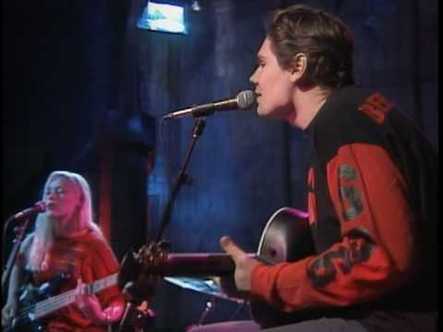
Cherub Rock live at MTV Studios in 1993
If you listen to the applause from 90s bootlegs and look at the propulsion which the press and media generated for the band, you realize that 90s Smashing Pumpkins are one of the only TRUE rock ‘n roll bands. They’ve gone through all the stereotypical stages that rock bands go through: the fame, overdoses, record label pressures, loss of place and regaining of relevance… (Examples: AC/DC, Hendrix/Morrison, Limp Bizkit, Lynyrd Skynyrd, etc.)
But anyway, here’s my last point.
An overwhelming importance should be placed on continuing to insert emotion in both new material and live performances from any band that is known for such music.
Here comes the bias.
Personally, I believe that there is an emotional void in music today. Popular artists don’t make viewers/listeners feel the way prior ones once did. I believe a successful band shouldn’t just care about tone and pitch–it should care about the feelings its music evokes in the audience and within the bandmates. For instance, Gordon Gano, Billy Corgan, Fred Durst were all societal misfits that used music as a their emotional medium–and all of them achieved widespread success. For all of the aforementioned bands from these musicians [Violent Femmes (now broken up, sadly), The Smashing Pumpkins, and Limp Bizkit, respectively], the only concrete way for any of them to reach the fame they once held is to write music with emotion again– however painful it is–and perform it in the same fashion. For Limp Bizkit that means Fred has to scream again.
Billy Corgan seemed to address this topic recently, saying that he was not going to play older songs the way he did when he was 26. What that means to him is entirely different than what it means to fans. But Billy, I know I’m not alone when I say we love it when you lose control on stage.
To the fans: Start it up around 6:40:
[youtube http://www.youtube.com/watch?v=bmyqOQ7oSaE&w=420&h=315]
The reality of the situation is that we’re not in the 90s anymore and our favorite frontman is 45 years old. Many of you are not ready to let the memories of 90s Smashing Pumpkins go, whether it includes catching the band live or your nostalgia for your own individual memories that include the band. After all, I’ve listened to the band at so many different points and milestones in my life that I can usually name a song to describe how I was feeling on a particular month within a given year. For me, that’s what makes this band so special.
Sidenote: If you still have not listened to Teargarden by Kaleidyscope, there are some very strong songs on it. Freak, Cottonwood Symphony, Lightning Strikes, and Spangled do it for me in that order.
I will say (and I tweeted this to Billy after seeing the X.Y.U. performance at Perth) that the band’s most recent line-up is playing the music (both new and old) in a manner almost equivalent to the power of 90s SP. And frankly, that is the only thing that matters for any older band trying to stay relevant. For The Pumpkins, it means bringing back the emotion to songs that seemed played obligatorily at shows in the past. For instance, in 2007 Billy played songs like the ominous b-side The Aeroplane Flies High, like he was doing the audience a favor (fair enough, especially in the case of Luna in 2012).
As a fan I have now been entirely honest with my expectations and hopes for my favorite band. Maybe all of you out there should do the same. For me, Oceania is only a starting point for this new generation of SP–a very limited snapshot of the potential that it holds.
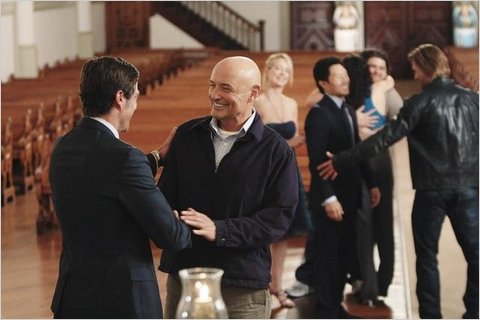
And that’s it!
These views are my opinions that detail the mostly subconscious work of listening to the band that has soundtracked my life since I was a kid. If you can relate or agree, let me know in the comments. If you can’t or don’t, please also let me know. I’m open to differing viewpoints as I continue to understand Billy’s goal with the new music, what the most recent incarnation of the band means to me, and what it means to be a real fan of any band.
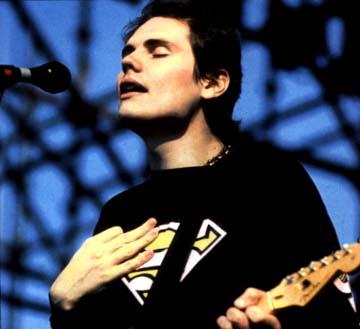

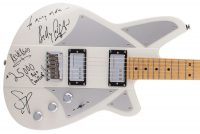

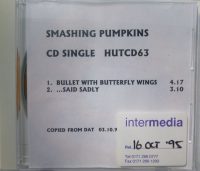
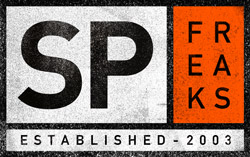
Leave a Reply